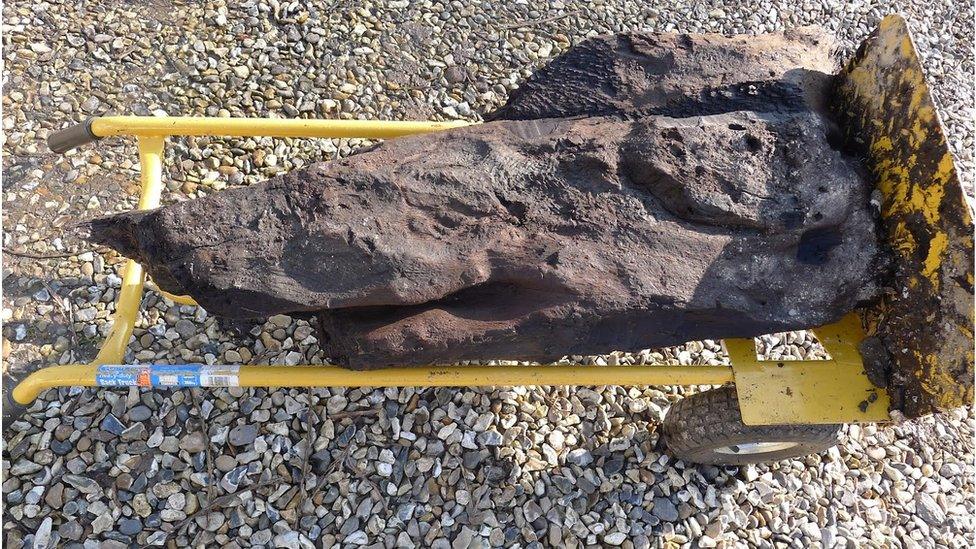Mesolithic pits found on Houghton Regis building site
- Published
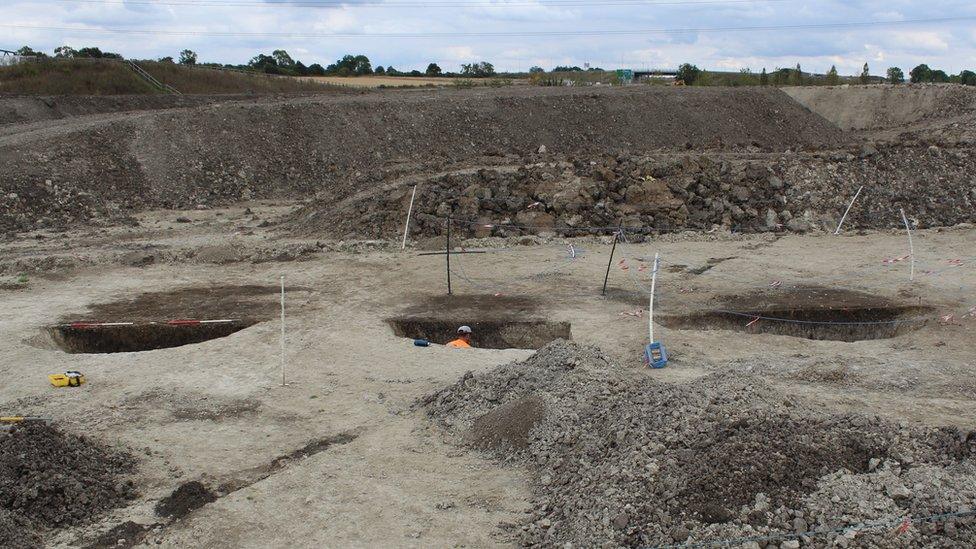
The pits appear to be laid out in 500m (1,640ft) long straight lines
Archaeologists have discovered up to 25 Mesolithic pits on what has been described as a "nationally important prehistoric site".
The pits, found in Houghton Regis, Bedfordshire, are up to 5m (16ft) wide and 1.85m (6ft) deep.
Animal bones found at the bottom of the pits have been used to identify them as about 8,000 years old.
Prof Joshua Pollard, an expert of British prehistory, described the discovery as "very exciting".
He told BBC Three Counties Radio: "It probably is the most exciting thing to ever happen in Houghton Regis."
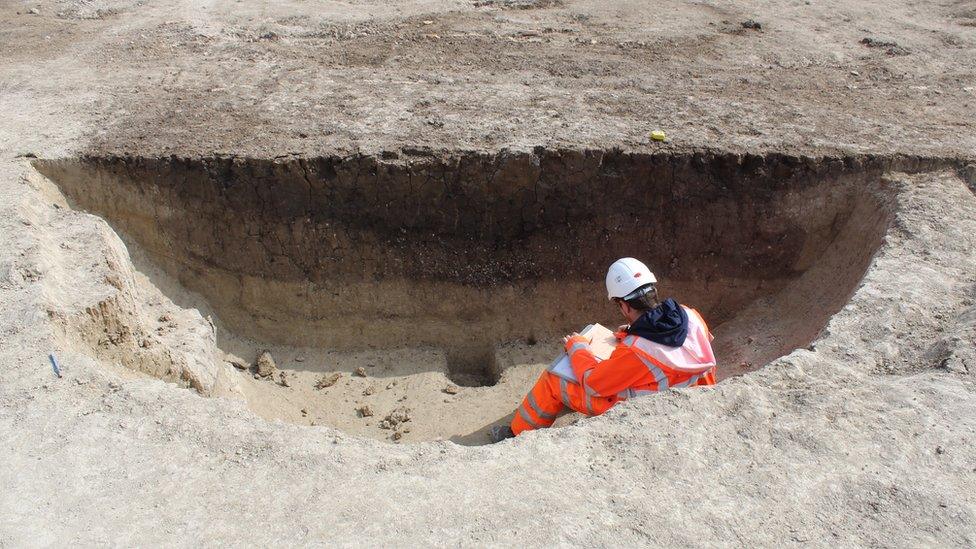
Experts believe there might be more pits outside the excavation area
The finds were made on the Linmere housing development in the Bedfordshire market town.
Prof Pollard, from Southampton University, said: "While we know of other large and enigmatic pits dug by hunter-gatherers from elsewhere in Britain, including at Stonehenge... the Linmere pits are striking because of their number and the wide area they cover."
The pits were filled in once excavation work was completed.
Prof Pollard said experts would continue to study the findings and "hopefully that's something the folk who are going to live over the top of them will find out about".
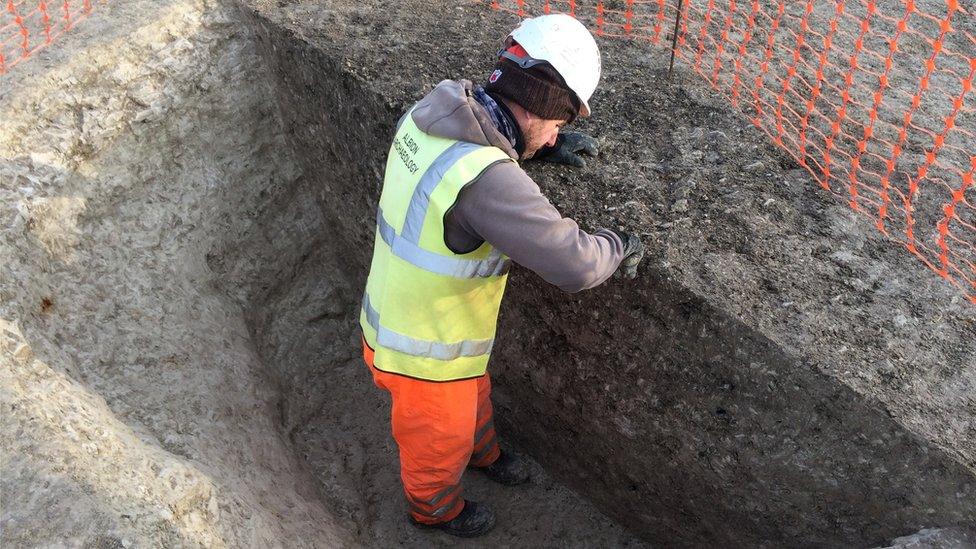
Thousands of similar prehistoric pits have been found close to Stonehenge, but only five of those date to the Mesolithic period
The site was first excavated by Albion Archaeology in 2019. The Museum of London Archaeology (MOLA) returned for further excavation in 2021.
MOLA said it was possible "there may be other pits still to be found outside these excavation areas".
Yvonne Wolframm-Murray, project officer, said: "It's been amazing for the whole team to work on such a significant Mesolithic site. It really shows how important radiocarbon dating is alongside field work, as without it we wouldn't have realised the significance of our discovery."
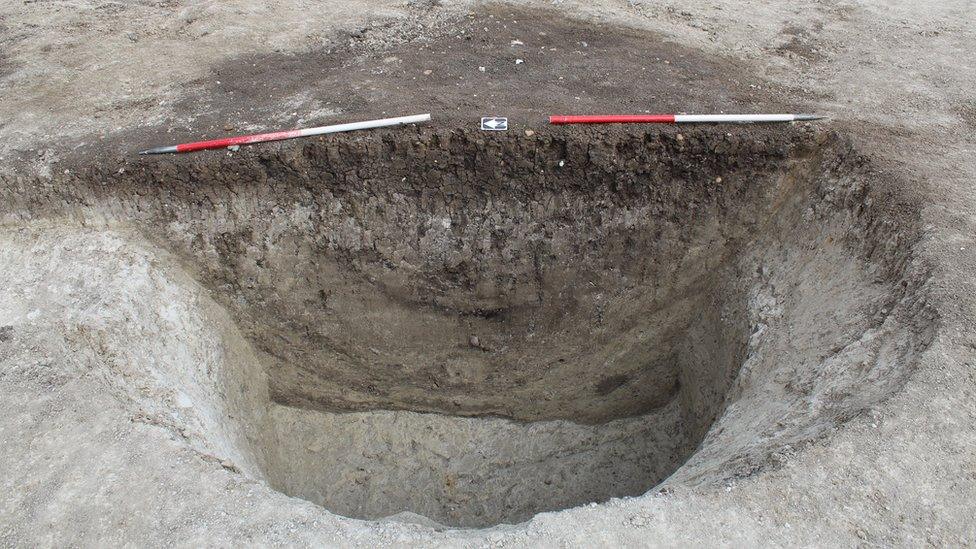
Some of the steep pits were flared out at the bottom into a wider base
MOLA said there were very few Mesolithic sites in the UK.
"Evidence from this period is often slim, only consisting of flint tools and occasional butchered animal remains," a spokesperson said.
"This makes it difficult to build up a picture of what life in Mesolithic Britain was like."

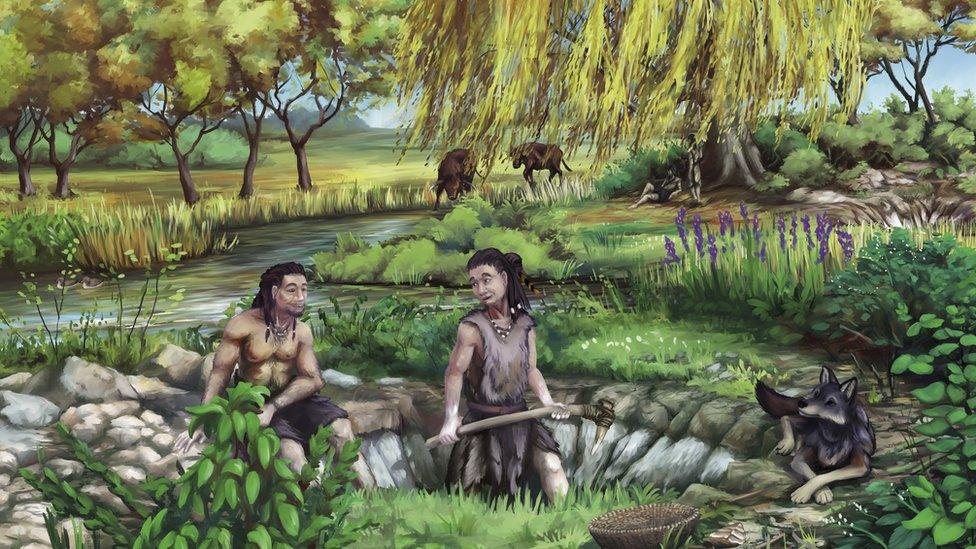
Evidence from Mesolithic Britain is slim, only consisting of flint tools and animal remains
Mesolithic Britain
The Mesolithic period of Britain took place between 10,000BC through to 4,000BC
The Linmere Pits are believed to be from about 6,000BC
They are significantly older than other popular ancient landmarks such as Stonehenge (around 3,000BC) and the Great Pyramids of Giza (around 2,500BC)
People in Mesolithic Britain were hunter-gatherers who tended to be quite mobile, not staying in one area
The Mesolithic period came to an end when farming arrived in Britain and the Neolithic period began
The pits are one of the largest Mesolithic sites discovered in Britain

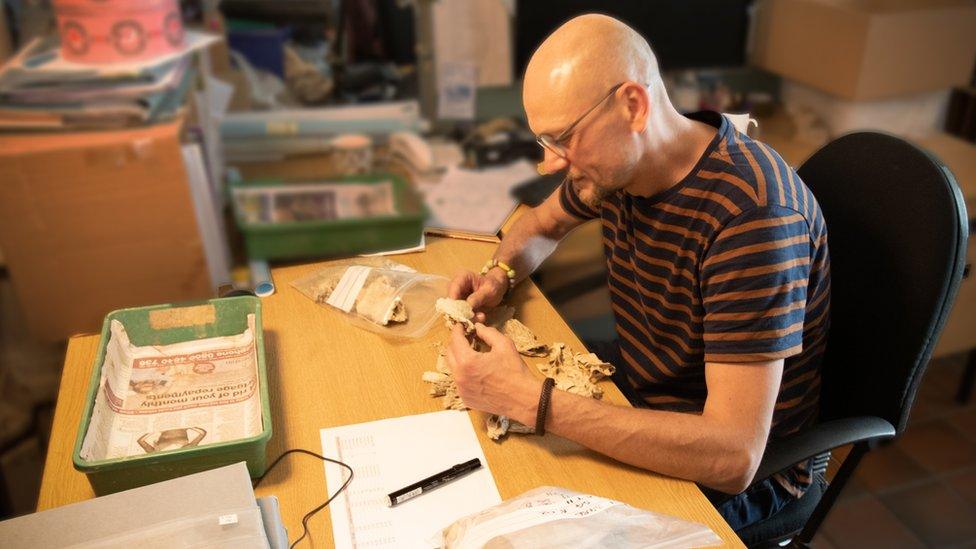
The remains of several wild species were found in the pits, including deer, boar and aurochs
Experts said digging such large pits would have been a difficult task for the nomadic people of the time.
There are theories as to what the pits would have been used for.
Some theorised they could have been used in hunting or for food storage, although this is thought to have been unlikely due to their shape and size.
It is also speculated they could have a spiritual significance, which is why they were dug in specific alignments and close to water.
Archaeologists are hoping to uncover the purpose of the site by studying samples of the environment and animal bones in labs.

Follow East of England news on Facebook, external, Instagram, external and Twitter, external. Got a story? Email eastofenglandnews@bbc.co.uk, external or WhatsApp us on 0800 169 1830
Related topics
- Published20 June 2022
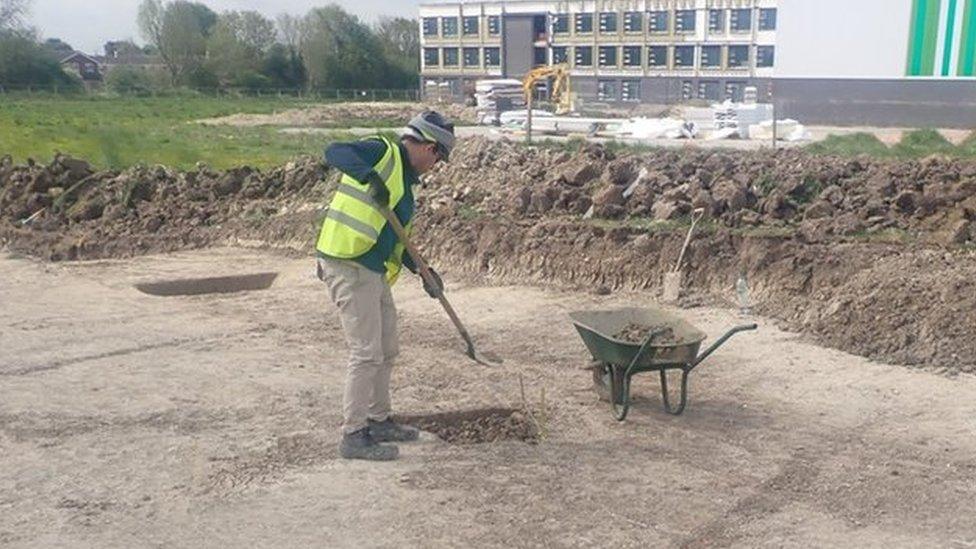
- Published15 June 2022
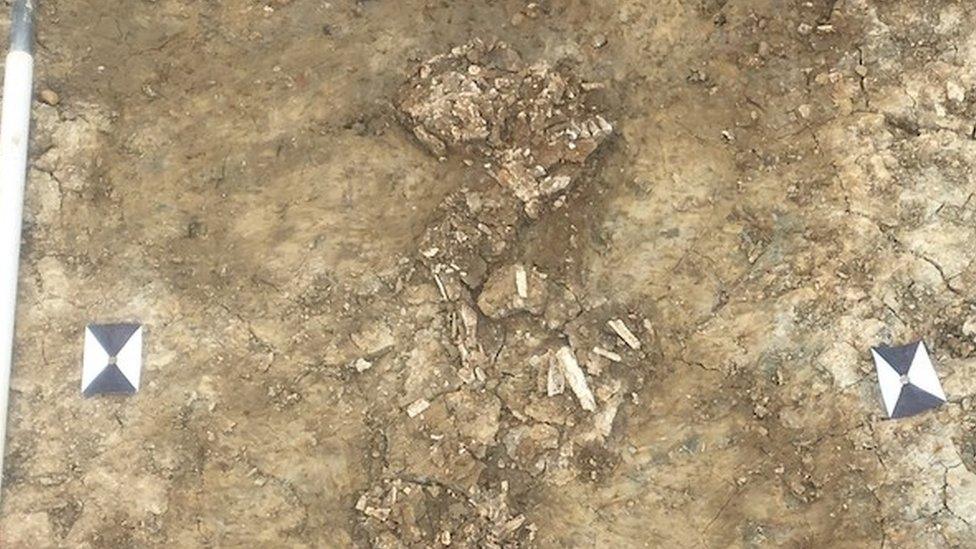
- Published7 June 2023
